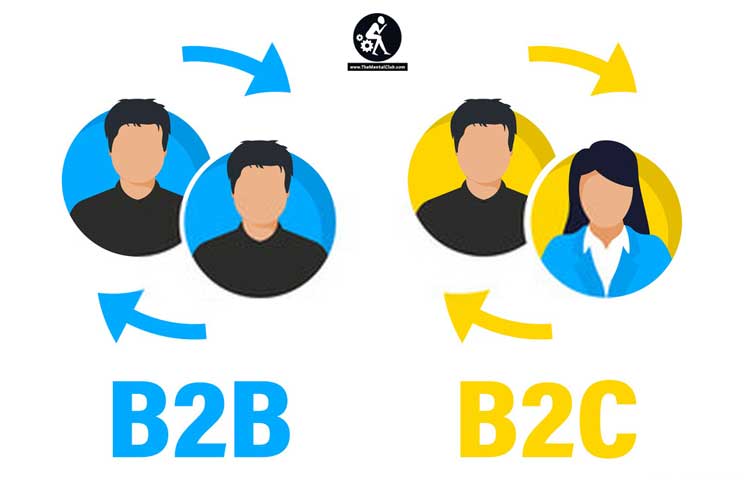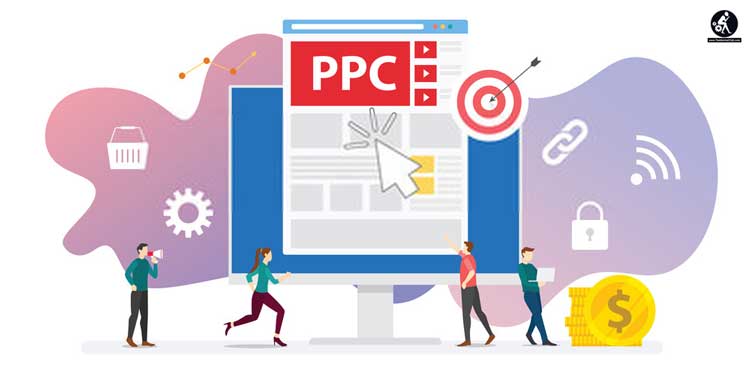The act of advertising and selling items and services through online marketing strategies such as social media marketing, search marketing, and email marketing is known as digital marketing. If a marketing campaign contains digital communication, it’s digital marketing.
What is the Process of Digital Marketing?

Digital marketing is similar to traditional marketing in many respects. Smart businesses strive to build mutually beneficial connections with prospects, leads, and customers in both cases. The goal is to devise a digital marketing strategy that places you in all of the locations where your fans already congregate, and then to use a variety of digital channels to communicate with them in a variety of ways.
Digital marketing for B2B vs. B2C
B2B and B2C businesses also benefit from digital marketing, but best practices differ dramatically.

Longer decision-making processes and, as a result, longer sales funnels are common among B2B clients. These clients respond better to relationship-building techniques, whereas B2C customers respond better to short-term offers and messaging.
B2B transactions are typically founded on rationality and proof, which are presented by professional B2B digital marketers. B2C content is more likely to be emotive, to make the customer happy with their purchase.
B2B decisions frequently require the input of more than one individual. Shareable and downloadable marketing materials are the most effective in driving these decisions. Customers in the B2C sector, on the other hand, want one-on-one interactions with brands.

A B2C company selling a high-ticket item like a car or computer might include more educational and serious content. Whether you’re a B2B or B2C company, your strategy must always be tailored to your specific customer base.
Digital marketing components
Digital marketing encompasses a vast network of digital touchpoints with which clients interact frequently throughout the day. To make the best use of these channels, you must first learn about them.
PPC Advertising: Pay-per-click. Paid search, often known as pay-per-click (PPC) advertising, is the sponsored result that appears at the top or side of a search engine results page (SERP). These advertisements charge you for each click, and they may be adjusted to appear only when specific search phrases are entered, so your ads are only shown to people who are looking for something specific.

These ads can be quite effective because they are based on data gathered from people’s online activities and are used to increase website traffic by sending relevant adverts to the appropriate people at the right time. These advertising also use retargeting, which means that marketing automation solutions can create unique, personalized cross-platform ads based on the behaviors of clients.
SEO marketing: SEO stands for search engine optimization (SEO). The act of optimizing your website’s content, technical setup, and reach such that your pages appear at the top of a search engine result for a given set of keyword terms is known as SEO. When visitors demonstrate behavior indicating that they’re looking for relevant products, SEO can push them to your site, which can be a game-changer considering that 90% of individuals searching haven’t formed an opinion about a brand yet.

SEO is described as leveraging popular keywords and phrases to improve a website’s ranking in online search results, and consequently its organic site traffic. Because exposure is the first step to a long-term consumer relationship, strong SEO methods are extremely important in digital marketing initiatives.
Content Marketing: Content marketing is a term that refers to the process of Effective content marketing that isn’t openly commercial; instead, it educates and inspires people who are looking for information. When you provide relevant material to your audience, you establish yourself as a thought leader and a reliable source of information, making it less likely that your other marketing efforts will be lost in the shuffle. Content marketing generates three times more leads than paid search advertising in the age of the self-directed buyer, so it’s well worth the extra effort.
Social media marketing: Having active social media accounts isn’t the only key to good social media marketing. To establish as many peer-to-peer sharing opportunities as possible, you must incorporate social components into every area of your marketing efforts. The more engaged your audience is with your content, the more inclined they are to share it, potentially influencing their friends to become clients as well.

Email marketing: Email is still the quickest and most direct way to communicate important information to customers. To avoid being buried in your customer’s inbox, successful email campaigns must be extremely engaging, relevant, instructive, and entertaining. To be successful, your marketing emails must meet five key criteria. They must be dependable, relevant, conversational, cross-channel coordinated.
Conclusion: In this era, it is impossible to make an online business successful without digital marketing. If you’ve any business idea in your mind or want to grow your existing business, then TechSolv IT Service can help you a lot.





























